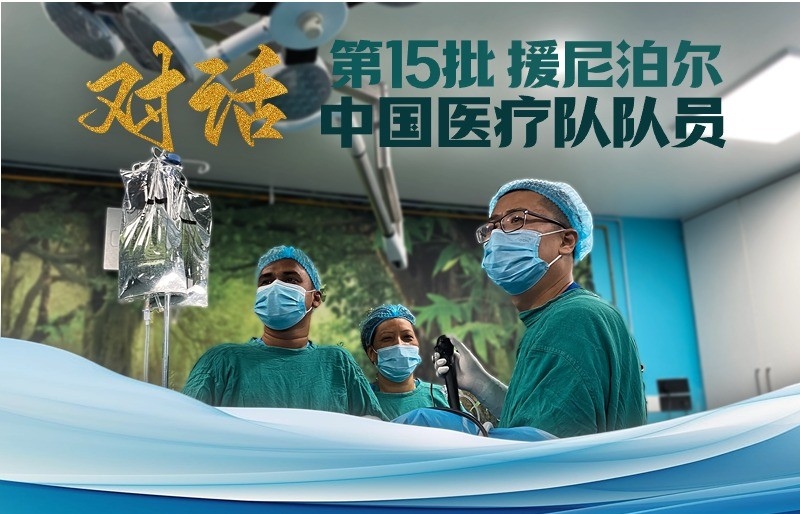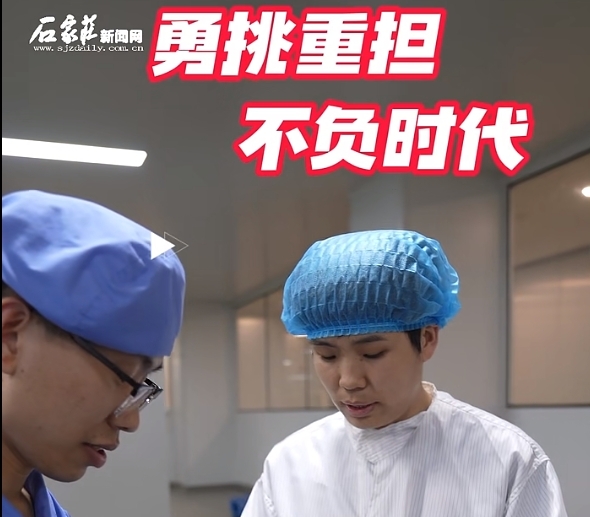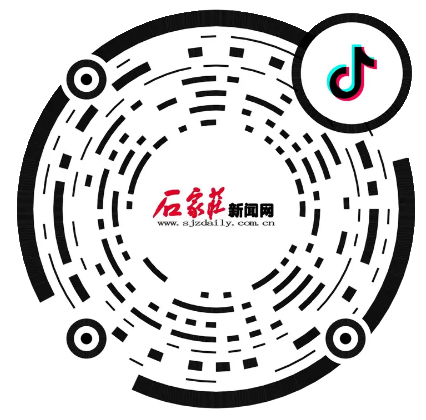The aging of population is the trend of the current development of human society. The latest data released by the National Bureau of Statistics shows that by the end of 2023, China's population aged 60 and above will exceed 296 million, of which about 170 million are netizens.
In the context of the accelerated development of mobile Internet, big data, artificial intelligence and other technologies, digital technology adaptation and transformation is not only a practical need to realize the aspirations of the elderly for a better life, but also a key element in promoting high-quality economic and social development.
What is the status quo of digital life of "silver haired netizens"? How can "silver haired netizens" enjoy friendly and barrier free network services? What should we do to develop the new industry of Yinfa digital economy?
"Don't make do with it, be particular"
Wang Yunfang, a 63 year old Beijing citizen, recently committed a taxi accident. Because he fell a few days ago, he lives in Xueyuan Road, Haidian District and goes to the TCM hospital about 9 kilometers away for massage every day. His son taught him how to operate the taxi software, but after he placed an order, he could not find the car every time because he could not understand the location on the mobile phone map.
"When the driver stops nearby, he always asks me to follow the directions. But at my age, I can't understand the mobile phone map at all. It's so crowded that I'm dizzy," Wang Yunfang said.
Zhang Hai, a 67 year old cataract patient, is also in trouble. Recently, he went to a hospital in Beijing for medical treatment. Because he could not register with his mobile phone, he had to queue up at the artificial window of the hospital. He needed to pay after seeing a doctor, but he could not operate the electronic payment system. Finally, he waited more than half an hour and called his daughter to the hospital to complete the operation.
"My daughter has always wanted to teach me how to register and pay with my mobile phone, but it's too complicated for me. The elderly can't keep up with the times, so what should I pay attention to? Let's make do with it!" Zhang Hai said helplessly.
"Make do" is the normal state in the digital life of some elderly people. Nowadays, it is not convenient to take the subway with physical tickets; Go to the hospital to see a doctor, and the window does not accept cash; With the popularization of Internet and digital technology, intelligent operation has become the "standard configuration" of most life scenes, from life payment, medical treatment, transportation, dining and entertainment. However, the increasingly digital life has brought troubles to some elderly people.
Take mobile payment as an example. In recent years, China's mobile payment has developed rapidly, and the proportion of traditional payment methods such as bank card and cash has declined significantly. However, the elderly still prefer cash payment.
"In response to these problems, we will guide payment institutions to launch a series of convenience measures. At present, major mobile payment apps have been upgraded to adapt to aging, and the mobile payment service experience of the elderly has been improved by simplifying processes, enlarging font images, and providing dedicated manual customer service," said Zhang Qingsong, vice president of the People's Bank of China.
The New Media Blue Book: China's New Media Development Report (2023) jointly released by the Institute of Journalism and Communication of the Chinese Academy of Social Sciences and the Social Sciences Academic Press shows that in the mobile communication era, most mobile phone software targets young people, reducing the visibility of the elderly in mobile networks and their adaptability, acceptance and intention to use various mobile phone software, It is difficult to enjoy the convenient and intelligent services brought by mobile communication. Therefore, the aging of mobile phone software network information services is the focus of new media development.
Technology has "love", and life has no "hindrance"
With the deepening of China's aging population, the transformation of digital technology to adapt to aging is gradually accelerating.
According to the reporter's survey, many Internet platforms have explored ways to optimize services and launched personalized customization functions for "silver haired netizens". For example, Taobao launched the "senior version", with orange bold font at the bottom of the page highlighting the voice function of "press and hold to search", helping the elderly who do not know how to type search for goods. The take away platform has also launched the "elder mode". The icons of "ordering take away", "going to buy food", "going to buy medicine" and "shopping in the supermarket" are larger, and the page elements are simpler and clearer.
"In the past, only children could buy tickets online, but now I can buy them myself." Not long ago, 66 year old Wang Jinqiu just bought a toy car for his grandson online. Since the e-commerce software on the mobile phone was updated to the "Love Edition", "the font is larger, the page is simpler, and there are prompts at every step of the payment process, which is easy and reassuring to use."
It is understood that the Ministry of Industry and Information Technology has completed the aging and barrier free transformation of 1735 websites and APPs. This has helped the elderly to further use mobile Internet technology. All regions and departments also rely on the national integrated government service platform to promote the deep integration of the platform with the people's clothing, food, housing, daily life and social public services, vigorously promote digital services for the benefit of the people, provide basic living security for the people in need, work for the disabled, work for the elderly, employment and entrepreneurship and other key livelihood services, and better address the livelihood pain points, bottlenecks, and difficulties, Continuously meet the multi-level and diversified service needs of enterprises and the masses.
According to the 53rd Statistical Report on the Development of Internet in China released by China Internet Network Information Center, as of the beginning of 2024, the development of digital technology has made public services more convenient and inclusive, and the scope of digital age friendly benefits has continued to expand. More than 140 million smart phones and smart TVs have completed aging friendly upgrading, The security for the elderly to enjoy digital life has been significantly enhanced.
It is the starting point and foothold for digital technology to adapt to aging to solve the difficulties and anxieties of the elderly's life circle and surrounding affairs, and to make "elderly care" become "elderly enjoyment".
Wang Nan, head of operation of Tencent SSV Silver Hair Technology Laboratory, said that as early as April 2021, Tencent had set up the Sustainable Social Value Business Department and the Silver Hair Technology Laboratory to carry out intelligent elderly care and technology assisted elderly related exploration in response to the pain points facing an aging society.
"Technology should be more warm and caring. The general principle of our innovative technology, product design and service optimization is to take the needs of the elderly as the starting point and the experience of the elderly as the foothold, so that the elderly can enjoy their old age, do something and be at peace with their old age." Wang Nan said.
Many experts believe that intellectualization and digitalization are important development directions for future aging renovation. "The cutting-edge technologies such as artificial intelligence, wearable devices and virtual reality have broad application prospects in the aging transformation, and related enterprises can create more intelligent elderly care services according to the living habits and scenes of the elderly," said Zhang Baoyi, president of Tianjin Sociology Society.
Let "fast technology" benefit "slow crowd"
"Silver haired netizens" are a huge group. According to the survey of China Internet Network Information Center, the number of Internet users in China is 1.092 billion. Among them, Internet users aged 60 and above accounted for 15.6%, about 170 million.
Another set of data shows that the elderly aged 60 and above are the main group of non Internet users in China - as of December 2023, the number of non Internet users in China is 317 million, of which the non Internet users aged 60 and above account for 39.8%, about 130 million.
This means that the transformation of digital technology to adapt to aging is facing heavy tasks. On the one hand, it is necessary to ensure that 170 million "silver haired netizens" can better use the Internet; on the other hand, it is also necessary to promote 130 million "silver haired non netizens" to learn how to use the Internet or get network benefits as much as possible. The industry is generally aware that, in addition to basic adjustments such as large brands and icons, it is also necessary to carry out aging adaptation from the deep needs of "silver haired netizens". It not only needs to cover the content level, but also needs to innovate the form from content to business, from product to service, constantly integrate media content, activate high-quality service resources, and form a matrix, integrated, professional, and convenient new media system.
This kind of aging not only makes life easier for "silver haired netizens", but also helps to form a "silver hair market" with great potential.
It is understood that the economic scale of China's silver industry is currently around 7 trillion yuan, and it is expected to reach about 30 trillion yuan by 2035. The development of silver economy has become the key to properly solve the problem of population aging.
The Work Plan for Promoting High Quality Development of Digital Technology Adaptability to Aging issued by the Ministry of Industry and Information Technology proposes that by the end of 2025, the standard and specification system of digital technology adaptation to aging will be more perfect, the scale of digital technology adaptation to aging will be effectively expanded, and the level will be constantly deepened, and the quality of digital product service supply and user experience will be significantly improved. The scheme puts forward specific work objectives from four aspects, namely, more solid foundation for digital technology aging development, continuous improvement of digital product and service supply quality, significant upgrading of digital technology aging service experience, and initial formation of digital technology aging industry ecology, and defines 11 key tasks such as Fengfu hardware product supply.
"In line with the upgrading of the consumption structure of the elderly and the trend of personalized, diversified and qualitative development of consumption demand, new technologies, new formats and new models in various fields of China's silver hair economy are emerging, which has become an important way to cultivate new drivers of industrial development." Wang Haotian, deputy director of the Macroeconomic Office of the Institute of Economic System and Management, China Academy of Macroeconomics, said.



















